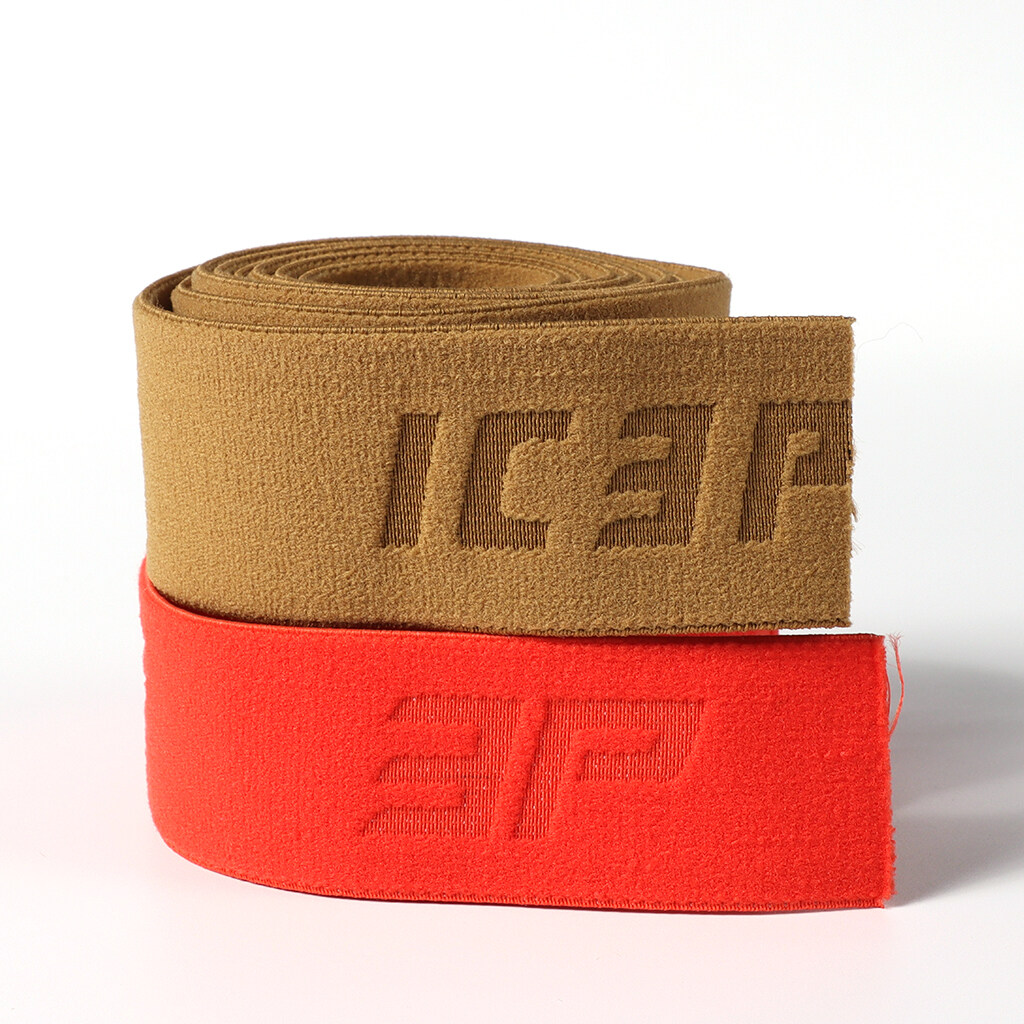Email cannot be empty
Password cannot be empty
Email format error
Email cannot be empty
Email already exists
6-20 characters(letters plus numbers only)
The password is inconsistent
Email format error
Email cannot be empty
Email does not exist
6-20 characters(letters plus numbers only)
The password is inconsistent


In the world of textiles, webbing plays a crucial role in various industries. From fashion to outdoor gear, webbing is used extensively for its strength, durability, and versatility. In this blog post, we will explore the world of webbing wholesale, focusing on elastic cord and webbing inc, jacquard elastic webbing, and cotton webbing manufacturers.
Understanding Elastic Cord and Webbing Inc
Elastic Cord and Webbing Inc is a renowned wholesale supplier of high-quality webbing products. With years of experience in the industry, they have established themselves as a reliable source for all webbing needs. Their extensive range of products includes elastic cords, webbing straps, and more. Whether you are a fashion designer or an outdoor enthusiast, it has got you covered.
Exploring Jacquard Elastic Webbing
It is a popular choice among designers and manufacturers due to its intricate patterns and high-quality construction. This type of webbing is created using a special weaving technique that allows for complex designs to be incorporated into the fabric. Whether you are looking for a unique trim for your garments or a decorative strap for your bags, it offers endless possibilities.
The Importance of Cotton Webbing Manufacturers
The manufacturers play a crucial role in the textile industry, particularly in meeting the demand for high-quality and sustainable webbing products. Here, we will explore the importance and why they are essential for various industries.
1. Quality Assurance: The manufacturers ensure that the webbing produced meets the highest quality standards. They carefully select the cotton fibers used in the production process, ensuring that they are of superior quality and free from any defects. By maintaining strict quality control measures, manufacturers can guarantee that the webbing is strong, durable, and able to withstand the demands of its intended applications.
2. Sustainability: With the growing emphasis on sustainability in the textile industry, the manufacturers play a vital role in meeting the demand for eco-friendly products. Cotton is a natural and renewable resource, making it an excellent choice for environmentally conscious consumers. Manufacturers who prioritize sustainability ensure that their production processes minimize waste, reduce energy consumption, and adhere to ethical practices. By choosing the manufacturers who prioritize sustainability, businesses can align themselves with the growing demand for eco-friendly products.
3. Versatility: Cotton webbing is highly versatile and finds applications in various industries. In the fashion industry, cotton webbing is used for belts, bag straps, and garment trims. Its soft and comfortable texture makes it a popular choice for clothing accessories. In the home decor industry, cotton webbing is used for curtain tiebacks, upholstery, and decorative accents. Additionally, cotton webbing is used in the automotive industry for seat belts and safety harnesses. The versatility of cotton webbing makes it a valuable component in many products, and manufacturers ensure that they can meet the diverse needs of different industries.
4. Customization: The manufacturers offer customization options to cater to the specific requirements of their clients. They can produce webbing in various widths, colors, and patterns, allowing businesses to create unique and personalized products. Whether it’s a specific color scheme for a fashion collection or a custom-designed pattern for a home decor project, the manufacturers can accommodate these requests, providing businesses with a competitive edge in the market.
5. Collaboration and Innovation: The manufacturers often collaborate with designers and businesses to develop new and innovative products. By working closely with their clients, manufacturers can understand their needs and provide solutions that meet their requirements. This collaboration fosters creativity and drives innovation in the industry, leading to the development of new webbing designs, textures, and functionalities.
Choosing the Right Cotton Webbing Manufacturer
Choosing the right cotton webbing manufacturer is crucial to ensure that you receive high-quality products that meet your specific requirements. Here are some factors to consider when selecting a manufacturer:
1. Reputation and Experience: Look for a manufacturer with a good reputation in the industry and a track record of delivering quality products. Research their background, read customer reviews, and check if they have any certifications or awards that demonstrate their expertise and commitment to excellence. An experienced manufacturer is more likely to have the knowledge and skills to produce top-notch cotton webbing.
2. Quality Control: Quality is paramount when it comes to cotton webbing. Inquire about the manufacturer’s quality control processes and standards. Ask about the materials they use, their production techniques, and how they ensure consistency and durability in their products. A reliable manufacturer will have stringent quality control measures in place to guarantee that their cotton webbing meets the highest standards.
3. Sustainability Practices: As sustainability becomes increasingly important, choose a manufacturer that prioritizes eco-friendly practices. Inquire about their sourcing methods, such as whether they use organic cotton or have certifications for sustainable production. Ask about their waste management and recycling efforts. By selecting a manufacturer committed to sustainability, you can align your business with environmentally conscious values.
4. Customization Options: Consider whether the manufacturer offers customization options. Depending on your needs, you may require specific widths, colors, patterns, or finishes for your cotton webbing. A manufacturer that can accommodate customization requests will provide you with the flexibility to create unique and personalized products that stand out in the market.
5. Production Capacity and Lead Times: Evaluate the manufacturer’s production capacity and lead times to ensure they can meet your demand. If you have large orders or tight deadlines, it’s essential to choose a manufacturer that can handle your volume and deliver within your required timeframe. Communication is key here – discuss your requirements upfront and ensure that the manufacturer can meet your expectations.
6. Pricing and Cost-effectiveness: While price shouldn’t be the sole determining factor, it’s important to consider the manufacturer’s pricing structure and overall cost-effectiveness. Compare quotes from different manufacturers, taking into account factors such as quality, customization options, and additional services they may offer. Strive for a balance between quality and affordability to ensure you get the best value for your investment.
7. Communication and Customer Service: Lastly, assess the manufacturer’s communication and customer service. Clear and prompt communication is crucial for a successful partnership. Consider how responsive they are to inquiries, whether they provide regular updates on production progress, and if they are willing to address any concerns or issues that may arise. A manufacturer that values good customer service will be more likely to prioritize your satisfaction.
Applications of Webbing Wholesale
Webbing wholesale has a wide range of applications across various industries. Let’s explore some of the common applications where webbing is used:
1. Fashion Industry: Webbing is extensively used in the fashion industry for various purposes. It is commonly used as straps for bags, belts, and suspenders. Webbing can also be found in garments as trims, waistbands, and drawstrings. Its strength and durability make it an ideal choice for accessories and clothing that require reliable support.
2. Outdoor Gear: Webbing is an essential component in outdoor gear and equipment. It is used in backpacks, tents, hammocks, and other camping gear. Webbing straps are used for securing and adjusting equipment, providing stability and support. The durability and resistance to harsh weather conditions make webbing a reliable choice for outdoor applications.
3. Automotive Industry: Webbing plays a crucial role in the automotive industry, particularly in seat belts and safety harnesses. The strength and load-bearing capacity of webbing ensure the safety of passengers by restraining them during sudden stops or accidents. Webbing is also used in cargo straps and tie-downs for securing items in vehicles.
4. Home Furnishings: Webbing is used in various home furnishings to provide support and structure. It can be found in furniture upholstery, such as chair seats and backs. Webbing is also used in curtain tiebacks, bed frames, and decorative accents. Its versatility and strength make it an ideal choice for enhancing the functionality and aesthetics of home furnishings.
5. Medical and Healthcare: Webbing is used in the medical and healthcare industry for various applications. It is commonly used in patient restraints, such as wrist and ankle straps, to ensure the safety and security of patients. Webbing is also used in medical equipment, such as slings and braces, to provide support and stability.
6. Sports and Recreation: Webbing is widely used in sports and recreational activities. It can be found in harnesses for rock climbing, safety straps for water sports, and straps for backpacks and duffel bags used in sports activities. The strength and durability of webbing make it suitable for withstanding the rigors of active lifestyles.
7. Pet Accessories: Webbing is commonly used in pet accessories, such as collars, leashes, and harnesses. It provides strength and durability to ensure the safety and control of pets during walks or outdoor activities. Webbing is also used in pet carriers and crates to provide secure and comfortable transportation for pets.
8. Military and Defense: Webbing is extensively used in military and defense applications. It can be found in tactical gear, such as backpacks, vests, and belts. Webbing is also used in parachute harnesses, load-bearing equipment, and straps for securing equipment and supplies.
Conclusion
In conclusion, webbing wholesale is a vital aspect of the textile industry. Whether you are in need of any kind of webbing, there are numerous options available to meet your specific needs. By understanding the importance of webbing and choosing the right suppliers, you can ensure that your products are of the highest quality and meet the demands of your customers. So, next time you are in need of webbing, consider the options provided by webbing wholesale suppliers.